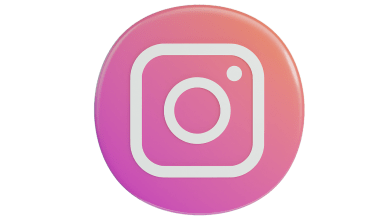Every musician dreams of signing with a record label. It’s a big step that can open doors to professional recording, wider distribution, and industry connections. But how to sign with a record label? Signing with a record label isn’t just about having talent; it’s about preparation, strategy, and timing. This guide will walk you through the process step by step, so you can confidently move closer to your goal.
Understand What Record Labels Are Looking For
Before you start approaching record labels, it’s crucial to understand what they’re looking for in an artist. Labels invest a lot of time and money into their artists, so they want someone who has a strong identity, a growing fanbase, and a unique sound.
Take some time to research different record labels. Look into their rosters and listen to the artists they’ve signed. Ask yourself:how to sign with a record label Does my music fit with their style? If you’re trying to sign with a record label that specializes in pop music but you create experimental jazz, it might not be the best match. Knowing where you fit will save you time and increase your chances of success.
Build Your Brand as an Artist
A strong personal brand is key to getting noticed by a record label. Think about your music style, your image, and the story you want to tell. Are you an indie storyteller, a vibrant pop star, or a soulful R&B artist? Whatever your vibe is, it should be consistent across all your platforms.
Social media plays a massive role here. Platforms like Instagram, TikTok, and YouTube allow you to showcase your personality and talent to a global audience. Engage with your followers by sharing behind-the-scenes content, live performances, and updates about your music journey. Labels pay attention to artists who can connect with an audience and build a loyal fanbase.
Create High-Quality Music
At the end of the day, your music is what will capture the attention of a record label. Spend time perfecting your craft and producing songs that showcase your unique voice. If you don’t have the resources to record professionally, look into affordable options like home studios or collaborations with other musicians and producers.
Remember, quality is more important than quantity. A few well-produced tracks will make a stronger impression than a large collection of mediocre songs. Also, try to stay consistent with your releases. Labels love to see that you can maintain a steady stream of creative output.
Build a Strong Fanbase
Having a solid fanbase can significantly increase your chances of signing with a record label. Fans prove that there’s a demand for your music. Start small by connecting with local audiences through gigs and open mics. Then, expand your reach through social media, live-streaming platforms, and collaborations with other artists.
Encourage your fans to share your music. Word of mouth is a powerful tool, and when people love what you do, they’ll naturally want to spread the word. Engage with your listeners by responding to comments, hosting Q&A sessions, and showing appreciation for their support.
Network Within the Industry
Connections can make a big difference in the music world. Attend industry events, music festivals, and conferences to meet people who can help you on your journey. Be genuine and professional when you network. Remember, it’s about building relationships, not just handing out business cards.
You might meet producers, managers, or other artists who can introduce you to the right people. Collaborating with others can also expose your music to new audiences and open doors to opportunities you might not have considered.
Prepare a Professional Demo
A demo is your calling card when approaching a record label. It should showcase your best work and highlight your unique sound. Stick to three or four of your strongest tracks and make sure they are well-produced and professionally mixed.
Include a cover letter or a one-sheet that provides a brief introduction to you as an artist. Mention your influences, achievements, and why you’re reaching out to that specific label. Keep it concise and professional.
Research and Target the Right Labels
Not all record labels are created equal. Some focus on specific genres, while others cater to independent artists or big-name stars. Make a list of labels that align with your music style and goals. Focus on smaller, independent labels if you’re just starting out. They’re often more accessible and willing to take chances on emerging artists.
When reaching out, personalize your approach. Mention why you admire the label and how your music aligns with their vision. A generic email won’t stand out, but a thoughtful message will.
Submit Your Music to Record Labels
When you’re ready to submit your music, follow the label’s submission guidelines. These are often listed on their website. Some might require you to submit through an online form, while others might prefer email submissions. Always respect their preferences.
In your submission, keep it professional and to the point. Include links to your music, a short bio, and any relevant statistics like streaming numbers or social media followers. Avoid attaching large files; use streaming links or file-sharing services instead.
Be Patient and Persistent
The process of signing with a record label can take time. You might face rejection, but don’t let it discourage you. Every “no” brings you closer to a “yes.” Keep refining your craft, building your brand, and connecting with your audience.
Sometimes, labels might not respond immediately. Follow up politely after a few weeks if you haven’t heard back. However, don’t overdo it. If they’re interested, they’ll reach out.
Consider Alternative Paths
While signing with a record label is a traditional route, it’s not the only way to succeed in the music industry. Many artists are finding success through independent releases, crowdfunding, and digital platforms. These options allow you to retain more control over your music and career.
Explore what works best for you. If you can build a strong independent career, record labels might come to you instead of the other way around.
Know What to Expect in a Record Deal
If a label shows interest, take time to understand the terms of the deal. Record contracts can be complex, so it’s wise to consult a music lawyer before signing anything. Pay attention to details like royalties, ownership of your music, and contract length.
Don’t be afraid to negotiate. A good label will want a partnership that benefits both parties. Make sure you’re comfortable with the agreement and that it aligns with your long-term goals.
Conclusion
how to sign with a record label is an exciting milestone, but it’s not the end of the journey. It takes hard work, perseverance, and a clear vision of your future as an artist. By understanding the industry, building your brand, and staying dedicated to your craft, you can position yourself for success. Remember, every step you take brings you closer to your dream. Keep going, and don’t stop believing in your talent.
For further reading, explore these related articles:
- Exploring the World of Latino Singers: A Celebration of Music and Culture
- Linkin Park’s Biggest Hits: Exploring Their Greatest Songs
For additional resources on music marketing and distribution, visit DMT Records Pvt. Ltd..






